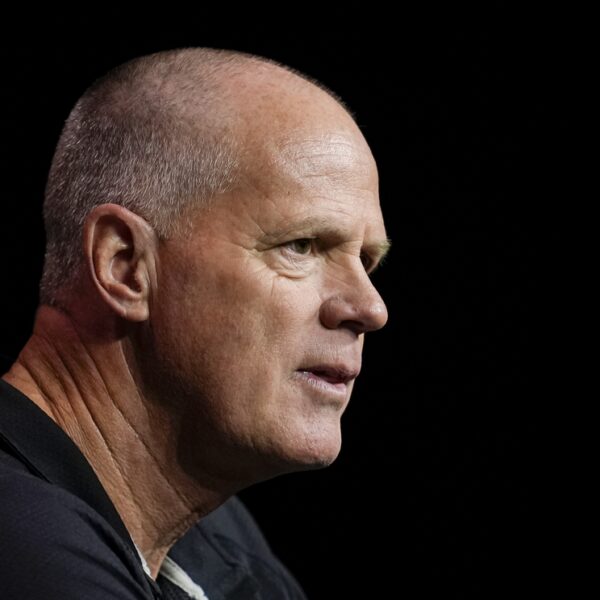Gone may be the days when founders and CEOs bragged about surviving on three hours of sleep and a daily dose of Adderall.
CEO and founder Peter Barsoom admits he was “one of those guys.” For two decades in finance, Barsoom would go to sleep past midnight, wake up at 4:30 a.m., and either take a bike ride or go for a swim before proudly sitting at his desk by 7:30 a.m.
“Sleep was something you did when you retired,” Barsoom, a Morgan Stanley alumnus who now runs a cannabis company, tells Fortune of his mindset. “My view has evolved like a total 180.” Now, he clocks in between six and eight hours a night and swears by the Calm app’s sleep stories.
And Barsoom isn’t alone. The global sleep economy is now worth over $500 billion, as consumers invest in everything from smart rings and blackout masks to $20,000 mattresses. As sleep tech, biohacking, and “sleepmaxxing” go mainstream, rest is becoming both a wellness priority and a modern status symbol in and out of the C-suite.
Sleep as a CEO strategy: How top execs are redefining success
Daniel Ramsey, CEO of MyOutDesk, which provides virtual staffing solutions for businesses, recalls being similarly drawn into the “hustle porn” that once dominated the mental zeitgeist of Wall Street’s prodigies, which preached that the only way to make it big is to sleep when you’re dead. Jack Dorsey, co-founder of Twitter, reportedly slept only four hours a night, while Elon Musk is said to have slept in his office.
“People now know that that’s not the way to actually have success long term,” Ramsey tells Fortune.
While the workload hasn’t lightened, Ramsey, 47, now tracks his sleep each night and prioritizes shutting off his brain.
“I’d like to lead people. I don’t want to have to micromanage them. I want to listen when there’s a problem and not judge,” Ramsey says. “I’ve found that when you focus on sleep and longevity and health, these things become easier.”
Arianna Huffington, CEO of Thrive, a behavior change technology company, describes her night-time routine as “a sacrosanct ritual.” It consists of putting her phone outside the bedroom, an occasional cup of chamomile or lavender tea, and reading a riveting book.

Courtesy of the Milken Institute
Tom Pickett, the CEO of Headspace, a mental health platform, says tracking his sleep provides “a window into how well I’m setting myself up for the next day and what I want to adjust to be better prepared for the following days.”
“I treat sleep prep like I would a workout or a board meeting, because when sleep slips, everything else does too,” he says.
Even Amazon tycoon Jeff Bezos has endorsed the power of a good night’s sleep.
“I get 8 hours of sleep, I prioritize it … I think better. I have more energy,” Bezos previously stated on the public stage. “As a senior executive, you get paid to make a small number of high-quality decisions.”
Wendy Troxel, PhD, a sleep scientist at RAND Corporation and author of Sharing the Covers tells Fortune she’s seen a major change in C-suite attitudes about rest since the early 2000s.
“The first ten years of my career it was all about convincing people why sleep matters. Sleep was considered wasted time,” Troxel tells Fortune. “Now, we’ve flipped that idea on its head. If you are trying to be a top performer, you really must make sleep a core part of your performance regimen.”
Unfortunately, she says sleep is “often the one thing that these high performers struggle with the most.”
And that’s a key reason the sleep economy is thriving.
Inside the booming $500 billion sleep economy
Donning an OURA ring at a martini lunch may just be becoming as desirable for business elites as a luxury watch. Over 2.5 million people have bought the OURA ring, which starts at $300 and includes a monthly subscription.
“There’s just all this information out there that really can help you optimize and figure out how to be the best version of yourself,” says Ramsey. “What I found is that the better I slept at night, the better I was as a leader, as an entrepreneur … as a dad.”
The sleep economy is valued at over $500 billion, and many market research groups estimate that the sleep aids marketplace alone is poised to exceed $150 billion by 2034. And the Global Wellness Institute has documented the rise of sleep tourism, sleep tracking, and AI-powered sleep tools as a growing trend in wellness.
Huffington, who began prioritizing sleep after physically collapsing from exhaustion earlier in her career, also wears the OURA ring and travels with the Therabody SleepMask and black masking tape for blinking lights in hotel rooms. Meanwhile, wellness CEO Kayla Barnes has paid over $11,000 for an organic mattress, over $2,000 for an EMF-blocking Faraday cage, and over $10,000 on elite blackout shades.
Ramsey admits that the growing sleep economy has drawn him into a rabbit hole, seeking the most effective sleep tools and hacks. Ramsey, who is in bed by 9:30 p.m. each night and swears by mouth tape to improve his sleep quality, has spent tens of thousands of dollars on sleep aids, including a $20,000 Sleep Number bed.

Jonas Gaida
But it isn’t just successful 40-somethings and up who are prioritizing sleep and fueling the industry expansion. While sleep wisdom may come with age, Gen Z isn’t sleeping when they’re dead either.
“Sleepfluencers” or “sleep maxxers” have emerged among Gen Zers eager to optimize a good night’s sleep, championing hacks from sleepy girl mocktails to curated sleep playlists. Search “sleepmaxxing” on TikTok and you’ll find thousands of product reviews and suggested bedtime routines.
24-year-old Amrita Bhasin, CEO of Sotira, an AI-powered distributor for retail brands, is starting to invest more in her sleep and has spent approximately $150 a month on new sleep products, including blackout shades and eye masks.
Dismissing “the Silicon Valley TV show era of a bunch of guys sleeping in the office on air mattresses,” Bhasin says she’s “really trying to take things to the next level” when it comes to prioritizing sleep.
“I find hackathons to be really hard on my body right now,” Bhasin tells Fortune, referencing the culture of all-night coding. “It’s not healthy for a long-term strategy if you’re trying to do something like build a company.”
Sleep Optimization 101: Science-backed expert tips
Sleep improves brain health and performance, and is correlated with the ability to regulate emotions and decrease the risk of mental health problems like anxiety and depression. Sleep is also linked to mental clarity, as well as a reduction in chronic conditions such as heart disease.
“Sleep is directly linked with good judgment and decision-making skills, which is absolutely critical whether you’re an elite athlete or a CEO in a boardroom,” Troxel says. “Athletes are recognizing that recovery is often that knife-edge of performance.”
But as with anything, there is such a thing as overdoing it on sleep tech. There’s even a term—orthosomnia—for being stressed about your sleep tracker, which can, ironically, harm your sleep, Troxel says.
Notably, while sleep trackers and the latest gadgets may help people prioritize getting to bed and making healthier lifestyle choices based on data, they aren’t suitable for everyone, Troxel says. The most proven, no-cost ways to prioritize sleep are, she says, prioritizing at least seven hours of sleep, sleeping in cool, dark spaces, practicing a calming wind-down routine, and maintaining a consistent sleep and wake schedule.
How to get better sleep without spending thousands:
- Establish a wind-down routine to calm down before bed that can include reading, journaling, taking a warm shower, or meditating
- Limit screen time before bed to avoid the late-night scroll and overstimulation
- Avoid heavy meals within two hours of bedtime, which can disrupt your quality of sleep
- Keep the same bedtime and wake-up times to align with your body’s circadian rhythm
So maybe there’s a happy medium, where founders don’t sleep at their desks, but also don’t obsess over a less-than-optimal sleep score that ironically makes them worried into the night.
As for Barsoom, he admits that his 22-year-old, seemingly indestructible self would scoff if you told him he would one day meticulously cultivate his sleep habits—and swear by a curated bedtime story.
For more on the wellness economy:















